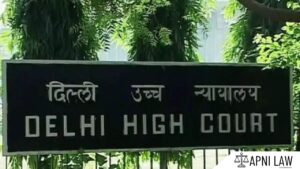The Supreme Court of India, on January 31, 2025, quashed a case filed under the SC/ST (Prevention of Atrocities) Act. The case involved an individual accused of insulting a public servant using his caste name inside a government office.
A bench comprising Justices BR Gavai and AG Masih ruled that the alleged offense did not occur “in public view,” a requirement under Sections 3(1)(r) and 3(1)(s) of the SC/ST Act. Since the incident took place within a private chamber inside the government office, it did not qualify as an offense under the Act.
Key Observations By Supreme Court
Caste-Based Insult Must Occur in Public View: The Court emphasized that for an act to be considered an offense under Sections 3(1)(r) and 3(1)(s), it must occur in a location where the public can hear or witness it. A private office or chamber, not accessible to the general public, does not qualify as a place “within public view.”
Incident Happened Inside a Private Chamber. The Appellant allegedly insulted the complainant, a Revenue Inspector, inside his chamber.The abuse included caste-based remarks and vulgar language. Colleagues arrived only after the incident occurred.
Reference to Previous Judgments: The Court cited Swaran Singh v. State (2008) 8 SCC 435 and Hitesh Verma v. State of Uttarakhand (2020) 10 SCC 710 to support its decision. In these cases, the Court ruled that caste-based abuse inside private offices or homes does not meet the “public view” requirement.
Verdict And Impact
The Supreme Court allowed the appeal and quashed the criminal case against the Appellant.
The judgment clarified that caste-based insults in private office spaces do not constitute an offense under the SC/ST Act.












